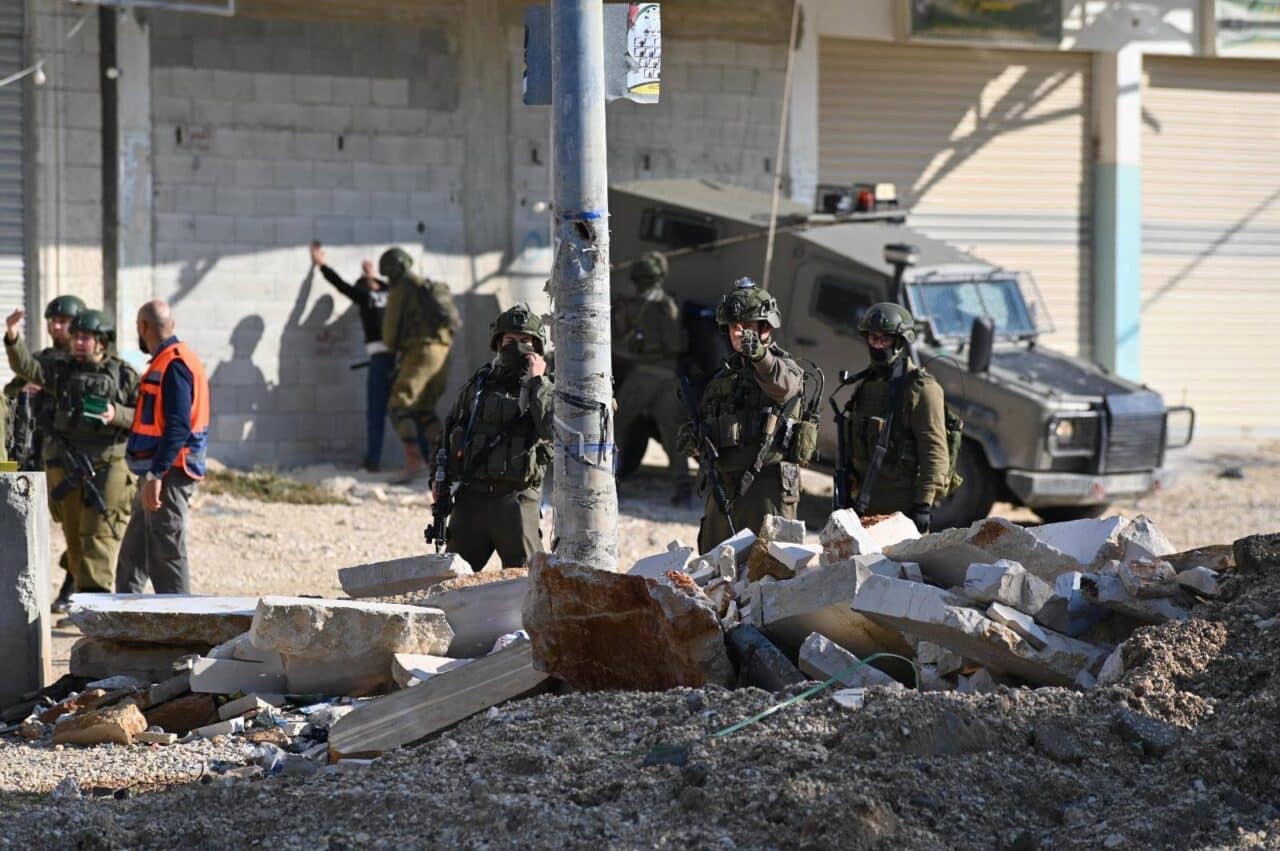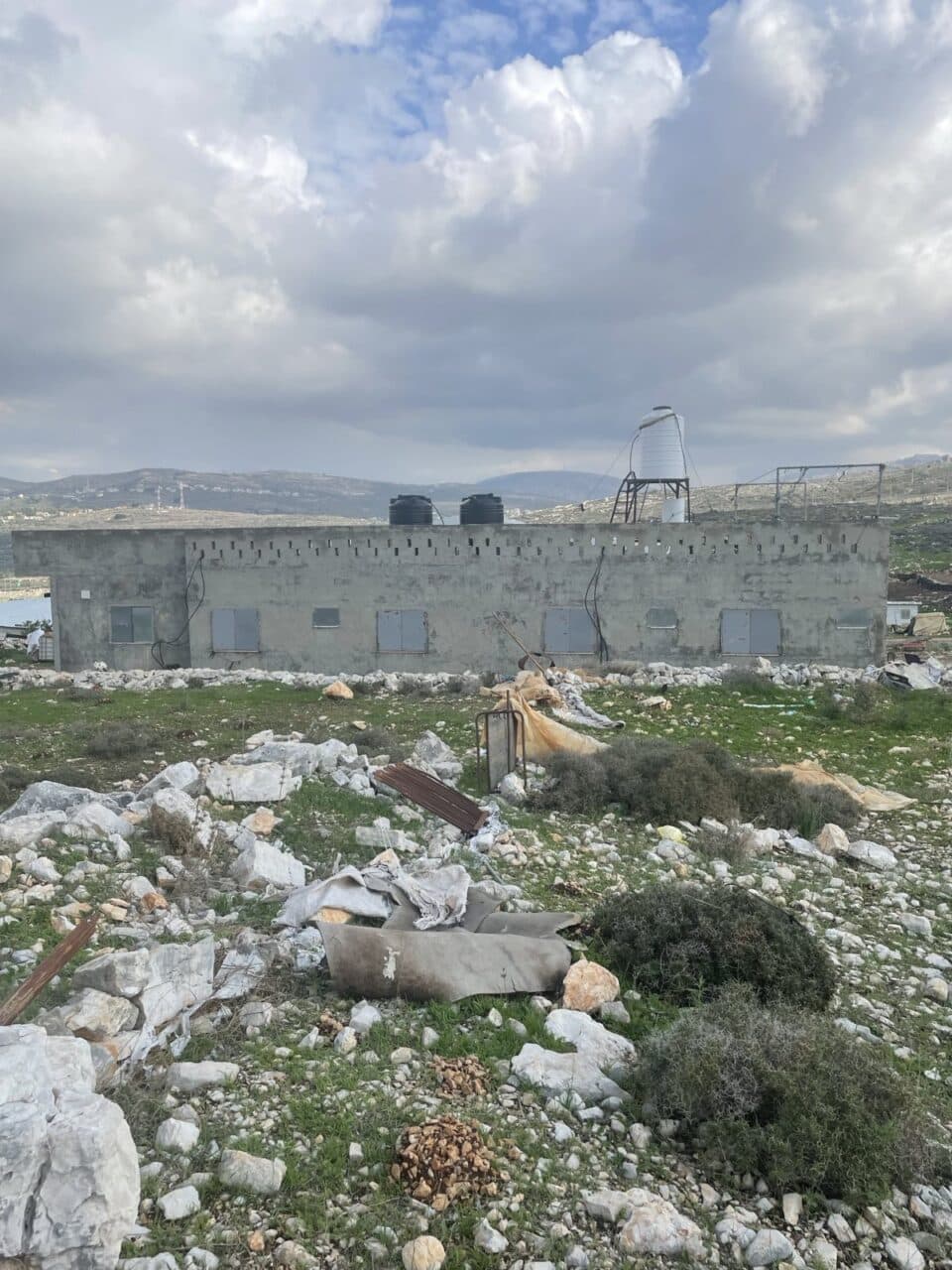Category: Reports
-
Israeli settlers, backed by army, attack family in Hammamat Al-Maleh
Saturday 27 December — Israeli settlers stormed Hammamat al-Maleh, in the Northern Jordan Valley. They forced their way into Burhan Ali Daraghmeh’s home, beating his 12-year-old daughter and two of his grandchildren. The settlers called for reinforcement, and as more settlers showed up, they started vandalising multiple homes and assaulting the women of the community.…
-
Palestinians continue to resist after brutal settler attack in Deir Sharaf
On the night of 11 November 2025, between Beit Lid and Kufr Kaddum, settlers brutally attacked 5 families who were living in the home they moved to in 1979. At the time of the attack, around 10 people were inside the house, mostly women and children, with 4 men out in the garden. That night,…
-

Israel Moves to Legitimize Its Crimes in the West Bank
Palestine / West BankBy Diana khwaelid The West Bank has witnessed an unprecedented escalation of violencecarried out both by Israeli soldiers deployed in the area and by settlersdriven by aggression. Beit Lid TownThe town of Beit Lid, located northeast of the city of Tulkarm in thenorthern West Bank, has experienced a surge in violence and…


